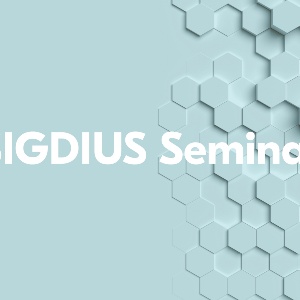| Time: | December 6, 2023, 2:00 p.m. (CET) |
|---|---|
| Download as iCal: |
|
The Special Interest Group Data Infrastructure provides a forum for interested working groups wishing to establish or further develop an RDM infrastructure at working group or institute level. We invite you to a monthly SIGDIUS seminar, to which we invite internal and external experts for presentations and discussions. SIGDIUS members will have the opportunity to exchange their experiences with concrete RDM infrastructures.
We cordially invite all interested parties to our next meeting on 6 December 2023 at 2:00 p.m. For participation, please send an e-mail to Juergen.Pleiss@itb.uni-stuttgart.de.
This seminar will be held as an online seminar with talks from:
Olaf Deutschmann
(KIT)
Digital twins of catalytic reactors: From archiving data to reactor simulations
tba
Richard Schömig
(SFB1333)
Research Data for Miniplants
The FAIR data principles stipulate that research data must be handled such that it is findable, accessible, interoperable and reusable. In many areas of chemical research, the implementation of these principles is pretty much straightforward, but there are areas where much more effort is required. One of these exceptions is given in technical chemistry: where in the past pilot plants were used to bring a laboratory-scale experiment to industrial maturity, more recent approaches rely on so called miniplants, which are miniaturised versions of industrial process plants. They are compact, provide more flexibility and are much more affordable. However, ensuring “F.A.I.R.ness” in this field requires a strong cohesion between the plant setup and the experimental results obtained by their integrated analysis and monitoring devices. Furthermore, miniplants are often designed as individual prototypes that contain customised components, and the analysis of the experimental results is often carried out using poorly documented scripts or Excel spreadsheets. Finally, different output formats of data often need to be manipulated or converted manually to be readable by the desired program, which can be time-consuming and erroneous.
In my upcoming presentation I will present ways to overcome these obstacles by showcasing our recent work that was done in collaboration within the SFB1333: A workflow platform based on a Jupyter notebook has been established that utilises a format-independent data model as a hub and interface to facilitate data parsing, data analysis and data storage. The transfer of existing data exchange formats is exploited to create a digital twin of the plant that is linked to the data. Outsourcing of Python modules and interactive widgets in the notebook provide a user-friendly interface, while still allowing for individual adjustments, even for users without strong coding background.


